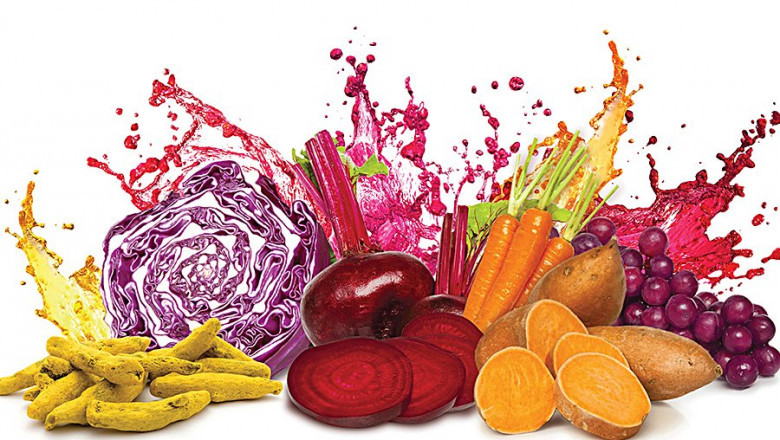views
Natural Flavours Market Impacting Factor: Rising Allergy Awareness Boosting Demand for Natural Alternatives
The natural flavours market is experiencing a surge in demand, largely driven by increasing consumer awareness of food allergies and sensitivities. As individuals become more cautious about what they consume, there is a growing preference for clean-label, transparent, and allergen-free ingredients. One of the most significant impacting factors shaping the natural flavours market is this heightened awareness of dietary intolerances and allergic reactions. This shift is not only influencing consumer buying habits but is also prompting manufacturers to innovate and reformulate products using natural alternatives to synthetic flavours and additives.
Rising Allergy Awareness: A Global Health Concern
Food allergies are becoming increasingly common worldwide, affecting millions of individuals across various age groups. According to the World Allergy Organization, the prevalence of food allergies has been on the rise, especially among children. Allergens such as nuts, dairy, soy, wheat, and artificial additives are known to cause adverse reactions in sensitive individuals, ranging from mild symptoms to severe anaphylactic responses. As a result, many consumers are now actively reading ingredient labels and avoiding products that could pose health risks.
This growing awareness has led to a demand for safer, more natural alternatives that do not contain artificial colours, preservatives, or flavouring agents. Natural flavours, which are derived from fruits, vegetables, herbs, and spices, are increasingly seen as a safer and healthier option. Their inclusion in food and beverage products offers a way to enhance taste without triggering allergic reactions or contributing to chemical sensitivities.
Clean Labels and Natural Flavours Go Hand in Hand
As allergy awareness rises, so does the desire for clean-label products. Clean-label refers to food items made with simple, natural, and easily recognizable ingredients. Products featuring natural flavours are more likely to meet the expectations of health-conscious consumers who are wary of hidden allergens or synthetic components.
Clean-label products often emphasize the absence of artificial flavour enhancers, chemical preservatives, and genetically modified ingredients. Instead, they highlight transparency, traceability, and minimal processing. By using natural alternatives in flavour formulation, brands can tap into a rapidly expanding market segment that prioritizes safety and health over convenience or cost.
Natural Alternatives to Common Allergenic Additives
The shift toward natural alternatives is particularly evident in categories where allergenic synthetic flavours were previously common. For instance:
-
Dairy-free and gluten-free baked goods now often rely on natural vanilla, cinnamon, or fruit extracts to deliver flavour without the risk of cross-contamination with allergens.
-
Beverages such as flavored waters and functional drinks are increasingly made with plant-derived essential oils and botanical extracts, reducing reliance on artificial sweeteners and synthetic flavours.
-
Snack manufacturers are turning to spice blends, dehydrated vegetables, and fruit concentrates for seasoning and aroma, rather than artificial chemicals that might pose risks to allergy sufferers.
These natural ingredients not only offer safety but also add authenticity and depth to food and beverage profiles, meeting the dual demand for taste and trust.
The Role of Regulatory Pressure and Industry Standards
In response to consumer demand and growing health concerns, regulatory bodies around the world have started enforcing stricter guidelines on food labelling and allergen disclosure. The U.S. Food and Drug Administration (FDA), European Food Safety Authority (EFSA), and other authorities have made it mandatory for manufacturers to clearly indicate the presence of major allergens and synthetic additives in their products.
This regulatory push is prompting companies to reformulate their offerings using natural flavours that not only comply with these rules but also enhance brand credibility. The food industry is investing in research to develop allergen-free natural alternatives that can mimic the taste and texture of traditional ingredients without compromising safety or flavour.
Consumer Trust and Brand Loyalty
Brands that embrace transparency, especially those that highlight the use of natural flavours and allergen-free components, are gaining consumer trust and long-term loyalty. In an age where social media and digital platforms amplify both praise and criticism, being transparent about ingredient sourcing, processing, and safety is more important than ever.
A growing number of consumers—particularly millennials and Gen Z—are choosing brands that align with their values. They want products that are not only delicious but also safe, ethical, and sustainable. The use of natural flavouring agents derived from organic or responsibly sourced materials supports this consumer preference and serves as a key differentiator in a competitive market.
Market Outlook and Future Trends
The natural flavours market is projected to grow significantly in the coming years, driven by consumer demand for allergen-free, clean-label, and health-oriented products. According to industry forecasts, the global market for natural flavours is expected to continue its upward trajectory, with key growth regions including North America, Europe, and Asia-Pacific.
Future trends suggest a rise in the use of:
-
Fermentation-derived natural flavours, which offer purity and precision.
-
Functional natural ingredients, like turmeric or ginger, that provide both taste and health benefits.
-
Personalized nutrition solutions, where consumers select flavours based on dietary needs or allergy profiles.
Technological advancements in flavour extraction and formulation are also making it easier for manufacturers to create natural alternatives that are stable, scalable, and economically viable. These innovations will help brands meet both regulatory requirements and consumer expectations.
Conclusion
Rising allergy awareness is undeniably a major impacting factor in the natural flavours market. As more consumers seek safe, clean-label alternatives, the demand for natural flavours is expected to grow across food, beverage, and nutritional sectors. By prioritizing allergen-free, naturally sourced ingredients, manufacturers can not only safeguard consumer health but also build stronger brand loyalty and unlock new market opportunities. Embracing natural alternatives is no longer just a trend—it’s a necessity in today’s health-focused, transparent marketplace.












![What Is The QuickBooks Enterprise Support Number [[GET Quick Assistance]]](https://timessquarereporter.com/upload/media/posts/2025-06/04/what-is-the-quickbooks-enterprise-support-number-get-quick-assistance_1749095947-s.jpg)





![Shoe Care Products Market [New Report] by Updated Development 2033](https://timessquarereporter.com/upload/media/posts/2025-04/21/shoe-care-products-market-new-report-by-updated-development-2033_1745224764-s.jpg)



Comments
0 comment